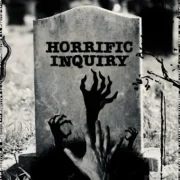Based On A True Story: THE REVENANT’s Marketing Machine
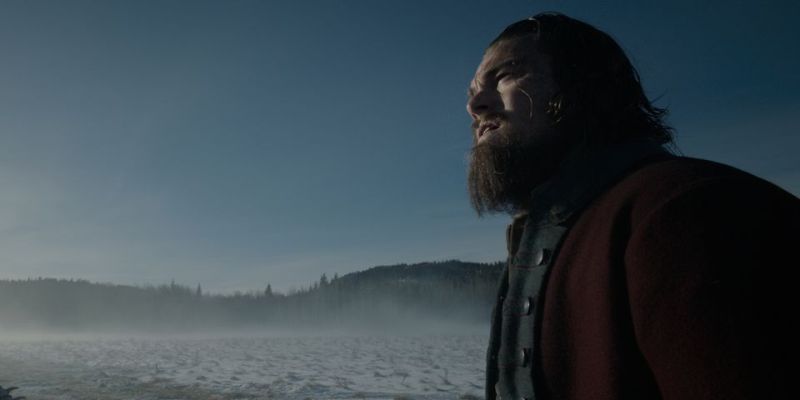
A screenwriter, director and actor. Writer and editor at Theatre…
“Literature is invention. Fiction is fiction. To call a story a true story is an insult to both art and truth.” – Vladimir Nabokov
“Based On A True Story.” These words, in one form or another, are blazoned on billboards across the world. The Big Short claims “This Is A True Story.” The Danish Girl is “Inspired by the Extraordinary True Story.” And The Revenant makes the dubious claim “Inspired by True Events”, accompanied by a full-length close-up of its star staring at the viewer – helpfully labelled, in case the message wasn’t blatant enough, “Leonardo DiCaprio”.
Ironically, The Revenant has the strongest claim on the contradictory soundbite “Based On A True Story.” Based on a 2002 novel, itself founded on fragmentary historical accounts and ‘true story’-style pulp magazine fodder, material previously adapted in 1971 in Man in the Wilderness, the movie is the latest in a tradition of myth-making begun by the fur-trappers themselves. James Bridger, portrayed by Will Poulter in the film, became himself a renowned teller of tall-tales of his travels.
One of the earliest accounts of the Hugh Glass story is “The Missouri Trapper”, published in 1825 in a Philadelphia newspaper called The Port Folio. Written by James Hall, the account claims to be derived from an “informant” who had himself heard the story from Glass. Once again, “Based On A True Story.” These early sketches of the American West play with the second-hand mediated ‘true story’ narrative as a literary trope that allows for a higher degree of suspended disbelief in their audience.
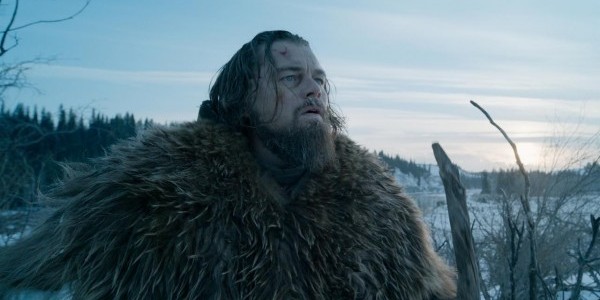
The ‘true story’ is a convention as old as storytelling itself, which plays with an audience’s gullibility through deference to a third-party eye-witness source, who lends (often anonymous) veracity to a otherwise fantastical fable. In the case of Hugh Glass, even discounting the Chinese Whispers of the hearsay relation from informant to Hall, the story by definition relies on the testimony of one man: a testimony of a solo ordeal that in order to be narrated, can only have been experienced alone. This is a narrative of a man making his own myth, both literally in his solo endurance and in his narration of it. The two events do not exist independently.
This observed, it is significant that The Revenant eschews the appropriately ambiguous “Based On A True Story” for the more meandering moniker “Inspired by True Events.” The distinction between the two has implications for the movie’s reception, the notion of ‘realism’ in film, and for the myth-making of movie marketing.
“A Living Hell”
Warning. Spoilers Ahead. This feature is based on True Events.
Despite its clear tall-tale pedigree, The Revenant tries its hardest to present itself as an unmediated narrative. The film’s claustrophobic ‘realism’ has been praised, the camera at times close enough to DiCaprio to catch his condensed breath in the extreme cold. Furthermore, the film’s edit imitates a documentary style, juxtaposing Glass’ ordeal with scenes portraying his Native American pursuers and the two men he himself pursues, arranging the film’s narrative with an objective eye as if these were literal events occupying one timescale. The effect of this style is to imbue the camera with the characteristics of an omniscient and omnipresent eye, and therefore Glass’ trials with the authenticity of the documentary. We are watching “True Events.”
The film’s reluctance to engage with its own fictivity, pursuing instead a misguided attempt at realism which is evidently inappropriate considering the material, was encapsulated for me by the moment we were treated to another condensation close-up, this time from an animated bear. The sub-Walking With Dinosaurs wildlife (another hallmark of the fictive-docudrama filmmaking style) embodied the fine line between the authentic and counterfeit which the film consistently failed to tread. Nothing sums up The Revenant’s vacuity better than the frozen breath of an animated bear.
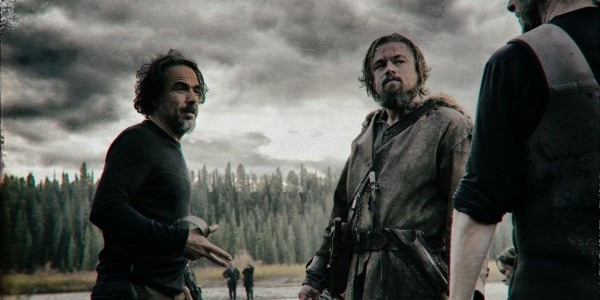
Much has been made of the gritty authenticity of the filmmaking process of The Revenant, with scenes shot in chronological order and only using natural light. We know all about the making of The Revenant because the movie was supported by a rabid marketing campaign, the prime focus of which being the gruelling conditions of the shoot. The Hollywood Reporter relates how crewmembers refer to The Revenant as “a living hell” – before quoting director Alejandro G. Iñárritu: “When you see the film, you will see the scale of it.” Note: when you see the film, not if.
This is a Sponsored Article
It has long been an accepted truth that ‘leaked’ information is just another method by which a movie is marketed, with on-set spats and budgetary blow-outs only serving to increase the film’s significance as an event. Articles and interviews such as that from The Hollywood Reporter quoted above are adverts, not investigative journalism. Titles such as “Why was The Revenant the toughest film shoot ever?” are pure clickbait – good for the journalists, but even better for 20th Century Fox. In fact, that last example barely even qualifies as journalism, being sponsored online content – brought to you, unsurprisingly, by 20th Century Fox.
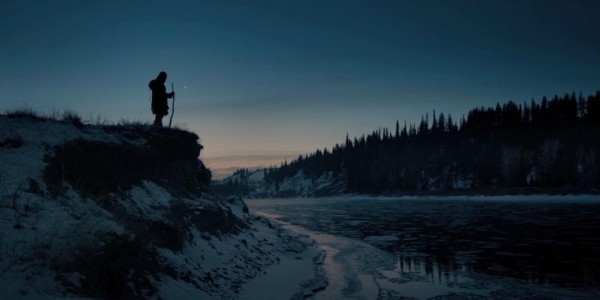
With blockbusters and the coverage of them increasingly coming from the same source, it is unsurprising that when I entered the cinema I knew more about the making of The Revenant than I did about the film itself. The marketing campaign had created for me a paranarrative – of the extreme conditions endured by DiCaprio – that consumed the movie’s own comparatively slight narrative of revenge and redemption. I could have easily mistaken the film I was watching for a making-of feature, such was the extent of my failure to suspend disbelief that this was anything other than Hollywood A-Listers impersonating Bear Grylls for money and acclaim.
(On 21st January, 20th Century Fox did actually release a making-of feature, called “A World Unseen”. It is more entertaining than the The Revenant, and tellingly, not that different – a story of a man overcoming overwhelming odds in inhospitable conditions, including being abandoned by members of his team… sound familiar?)
In the end, The Revenant’s marketing tagline “Inspired by True Events” is ironically utterly apt. It is a film inspired by True Events – the making of The Revenant. It is a film that exists solely to advertise its own existence, signifying only itself, and which will have melted out of memory by Spring.
What did you think of The Revenant? Has your moviegoing experience ever been ruined by marketing? Fight me in the comments!
Does content like this matter to you?
Become a Member and support film journalism. Unlock access to all of Film Inquiry`s great articles. Join a community of like-minded readers who are passionate about cinema - get access to our private members Network, give back to independent filmmakers, and more.
A screenwriter, director and actor. Writer and editor at Theatre Bubble (http://www.theatrebubble.com/author/lukerollason94gmail-com/). Oxford graduate. Failed Jedward Tribute Act.











